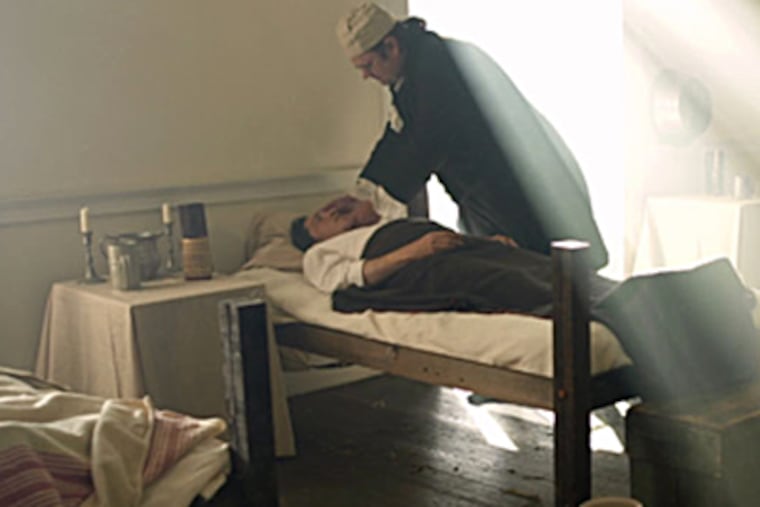The disease that nearly destroyed Philadelphia
In the summer of 1793, people in Philadelphia began dying of a mysterious disease, later identified as yellow fever.

In the summer of 1793, people in Philadelphia began dying of a mysterious disease, later identified as yellow fever.
By the end of the year, the illness had killed one in 10 Philadelphians, yet the devastation also strengthened the city. Determined to prevent future outbreaks, leaders created the Water Works, revived public parks and improved hospital care.
Former mayoral candidate Sam Katz and his son Philip tell this tragic, gruesome, yet inspiring story in the latest installment of their 12-part video documentary on this city's history titled, Philadelphia: The Great Experiment.
Inquirer reporter Miriam Hill talked to Sam Katz about the disease that nearly destroyed Philadelphia:
Question: Do you think an outbreak like this could happen here again?
Sam Katz: Absolutely. There are so many viruses and chemical agents and biological agents out there that I'm sure keep Homeland Security people up at night.
Look at how long it took the world to figure out what caused this. It wasn't until 1904 and the Panama Canal research on yellow fever that finally tracked it to mosquitoes.
Q: Why did it take so long? And were you surprised at some of the beliefs about science at the time, like using mercury-based substances to purge illness?
Katz: Science is imperfect. If scientific investigators go down the wrong path, they can stay on the wrong path for a long time.
Q: Your documentary paints a harsh picture of race relations. Dr. Benjamin Rush mistakenly believed that black people were immune to yellow fever, so he asked them to care for white sufferers. Richard Allen agreed to help, only to find his people accused of stealing and other crimes. How did that end up coming back on them so negatively?
Katz: Partly because racism was alive and well and partly because every society needs to find scapegoats for things when they don't go well...
It's not possible that Richard Allen and Absalom Jones thought that blacks were immune. They saw them dying.... Of the 5,000 people who died [in 1793], about 200 were Africans....
Allen was in a constant struggle throughout his life over whether to stay in America. He wanted to drink the Kool-Aid, but he always saw evidence of as many steps backward as there were forward, in fact more probably backward.
[But I think Allen's decision to help] demonstrates the humanity of the man. . . . The guy grew up on a slave plantation, so the mistreatment of human beings was not a new concept that he learned in Philadelphia during the yellow fever epidemic.
Q: Stephen Girard is best known as the wealthy banker who founded Girard College. Your documentary also shows how he dramatically improved care at Bush Hill Hospital, in part by improving sanitation.
Katz: I think Girard's philanthropy is grounded in his yellow fever experience. He had already established himself as the leading trader and maritime businessman in Philadelphia. He couldn't afford for Philadelphia to collapse.
Q: So he was a humanitarian, but he also owned slaves.
Katz: Benjamin Rush owned a slave, too, while being one of the leaders of the Pennsylvania Abolition Society.
How did William Penn own slaves? This is stuff we just don't know. We're now going to try to understand, in the 21st century, a set of mores that were not explicable.
How about Jefferson? He wrote in favor of the abolition of slavery in American legal documents but he would have been poor but for slaves. I don't know how these guys managed these conflicts. Blacks owned slaves in Philadelphia. . . .
Q: The next installment in your documentary covers the period from 1944 to 1970. Can you give us a sneak peek at what is coming?
Katz: The city came into the 1950s with such promise and optimism for redevelopment, for cleaning up government, for racial harmony. Industry and job losses together with difficulties of changing mindsets of social and racial issues upended the reform. But this period laid the foundations for the dynamism that has lifted Philadelphia today.
Q: Do you see any parallels between running for mayor and making a documentary?
Katz: The forces aligned against doing the film were not as ferocious as those aligned against becoming mayor...
Both are legacy-building opportunities, in one case to lead, in the other to educate and inform.